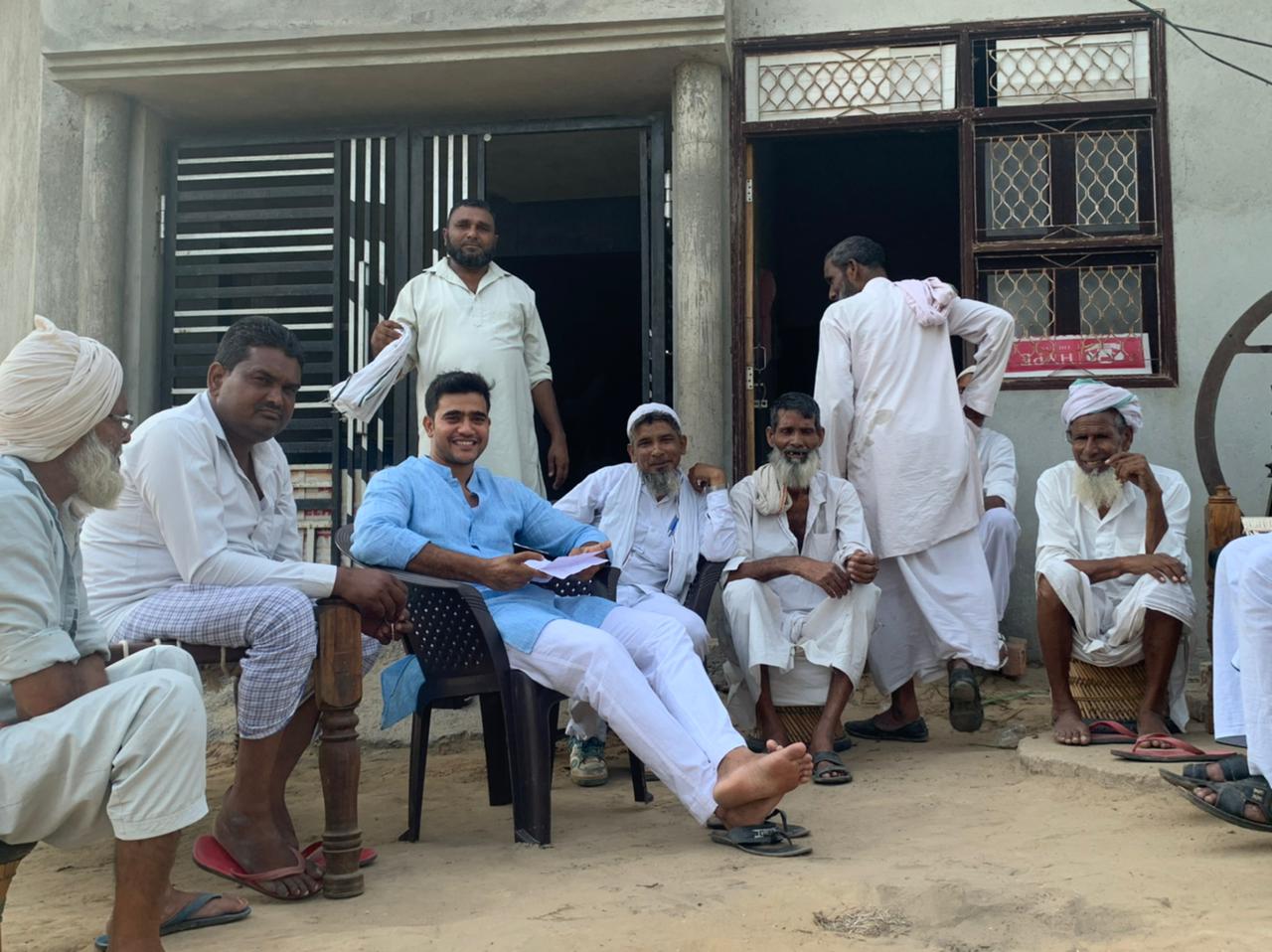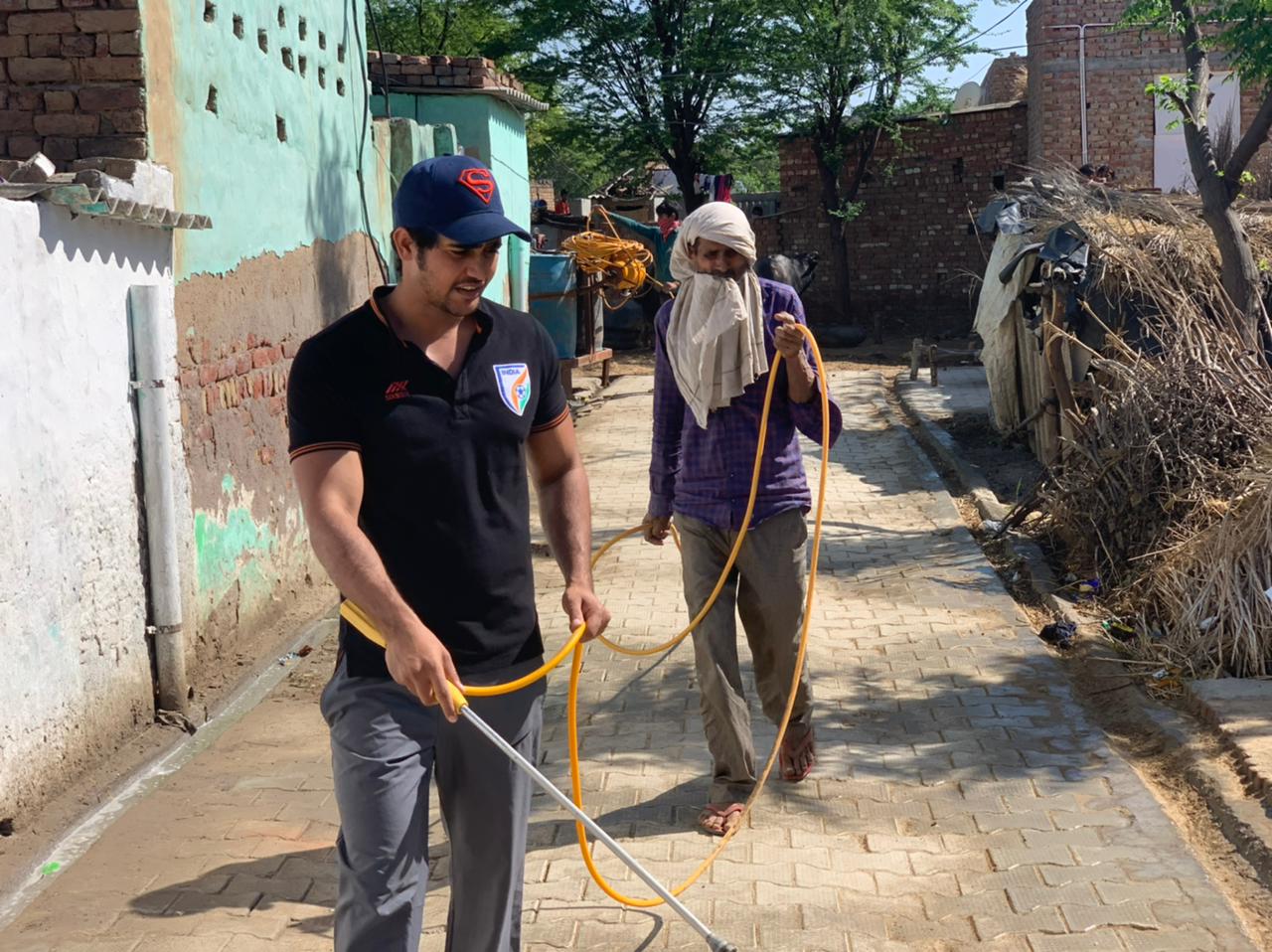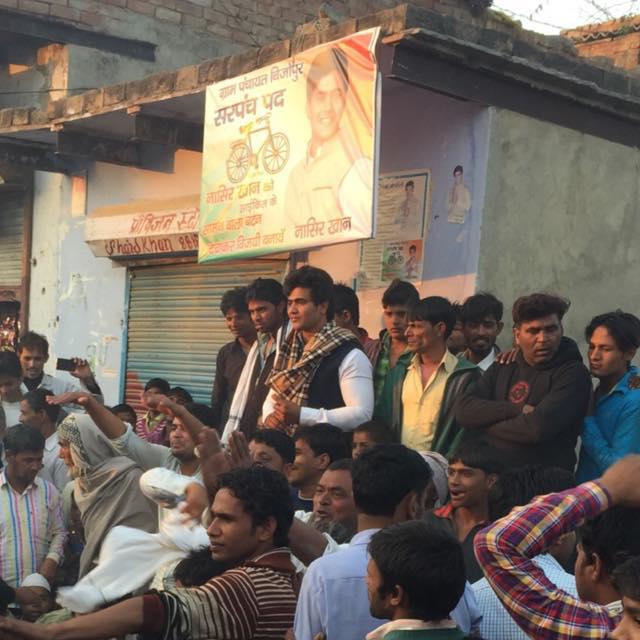One of India’s most neglected aspects of politics is rural politics, as it resides in local areas and mainly in villages. These villages still lag way behind in terms of development. Urban areas focus on education, business, economy, healthcare, and employment, whereas rural politics is about building schools and toilets, generating awareness on education, etc.
Recently, the government has been trying to develop the village areas. Still, we know very little about rural politics and how it works. So to satisfy our curiosity, we connected with Nasir Khan, who is the Sarpanch of Bijopur. He took over the position at a very young age and brought much-needed changes to his village. HatkeStory interviewed him to know more about rural politics.
Aashna: Nasir Khan, tell us more about yourself
Nasir Khan – I was born in Bijopur and brought up in Faridabad. I completed my schooling and graduated from Nainital. Despite an agricultural background, my parents always supported my education and provided the best opportunities.
I come from an average middle-class family. My grandfather was a farmer, and he was the man who expanded his farming business. My father joined it later, but he always wanted us to study more and more. All my sisters are highly educated.
Aashna: When did you decide to become a Sarpanch and why?
Nasir Khan – Since my childhood, I have dreamt of becoming a politician or police officer. For my family, both were rare professions. When I turned 21, I decided to choose politics over IPS. In my village, elections were around the corner, so I decided to participate in it. I told them I wanted to fight the upcoming Sarpanch election. They were surprised as I was only 21, and we didn’t have any political background. Although they didn’t oppose my decision and supported whatever I wanted to do. So choosing politics was a childhood dream.

Aashna: How did you fight the election? What were the problems you had to face as you were the youngest candidate? How did people react to it?
Nasir Khan – If I talk about enrolling in elections, then it’s pretty simple. In rural politics, anyone can participate if you are a resident of the village and old enough to enroll. Other than this, there are no boundaries. You don’t need any party’s support or permission to contest for the Sarpanch election.
However, convincing everyone to vote for me was tedious as I was young. Villagers didn’t know me at all, and villagers mostly believed in generation politics. It’s more like the ‘Sarpanch ka beta hi Sarpanch banega’ type of mentality. So it was hard for me to convince them to choose me over other candidates.
To promote the campaign, I used to visit villagers and talk to them personally. I’d tell them that I can understand your problems and I know the solution as well. I can solve your problems. I am young, and I want to help you. I wish to provide education, employment opportunities and bring a good change to this village. If you want it to happen, then vote for me. My speech, convincing power, and communication skills strengthened my stand, and I won the election.
Aashna: What did you do after getting elected as Sarpanch?
Nasir Khan – I mainly focused on improving the literacy rate of my village. In our society, the Muslim communities have significantly less interest in education. They are not serious about their son or daughter’s education, so I promoted education to combat this issue.

There was no toilet in the local school so girls wouldn’t study there. Then, I built toilets and motivated them to join back. Till now, we have constructed 96 toilets, a playground, a graveyard, and many other necessary buildings. My team and villagers have helped in achieving the goal.
Now, Bijopur is open-defecation-free. I cleared pending electricity bills of schools and made some other changes as well. It impacted the school’s progress positively. Gradually, the number of girl students increased. Currently, we have 300+ girls studying in the local school.
Aashna: What were the difficulties you had to face while implementing these policies?
Nasir Khan – In rural areas, the main hurdle is people’s orthodox nature. Here, you have to convince them to prioritize education and other essential factors of life. It’s a big task because villagers don’t agree on everything. It is tough to convince them, but in urban areas, some masses are educated, and they know how to differentiate between right and wrong.
They understand everything. Besides, generation politics also play a crucial role in rural politics. I faced hard times convincing people to prioritize education, let their children join the school, and let their girls study. I was backed by many locals who appreciated my aim. So I wouldn’t say everyone has this mindset. There are exceptions as well. With their support, I was able to make it happen.
Aashna: Does corruption exist in rural politics as well? If yes, then how does it happen?
Nasir Khan – Corruption is everywhere, and in rural areas, the administration takes out the piece of equipment or facilities that the government has released to develop the village. So, of course, it does exist.

Aashna: Your term is about to end, so will you contest for the next election? If yes, then what is your plan?
Nasir Khan – Yes, I’ll be contesting for the next election as well. Regarding the upcoming agenda, I’d like to focus on those things I couldn’t achieve in this tenure.
I want to make e-libraries in my village and connect education with technology. Achieving a 100% literacy rate for the upcoming generation is my dream. Other than this, there are some other factors on which I’d like to focus, such as healthcare, employment, cleanliness, and transportation, etc.
Aashna: What is the one most important lesson that you have learned from your life?
Nasir Khan – If you want to start something, then do it now. Don’t depend on tomorrow. Today is the day to do it. It is not too late to start. Start whenever you get a chance. Please don’t wait for it. I don’t wish for it. Just work for it. If you don’t like something, then get up and change the things around you.
Like us on FB, if you find our content interesting: https://www.facebook.com/hatkestoryofficial/
Do you have an interesting incident or experience to share with the world? Write to us, and together we can discuss how to weave your story and present it to the world. Would you mind sending us your story?







Comments are closed.